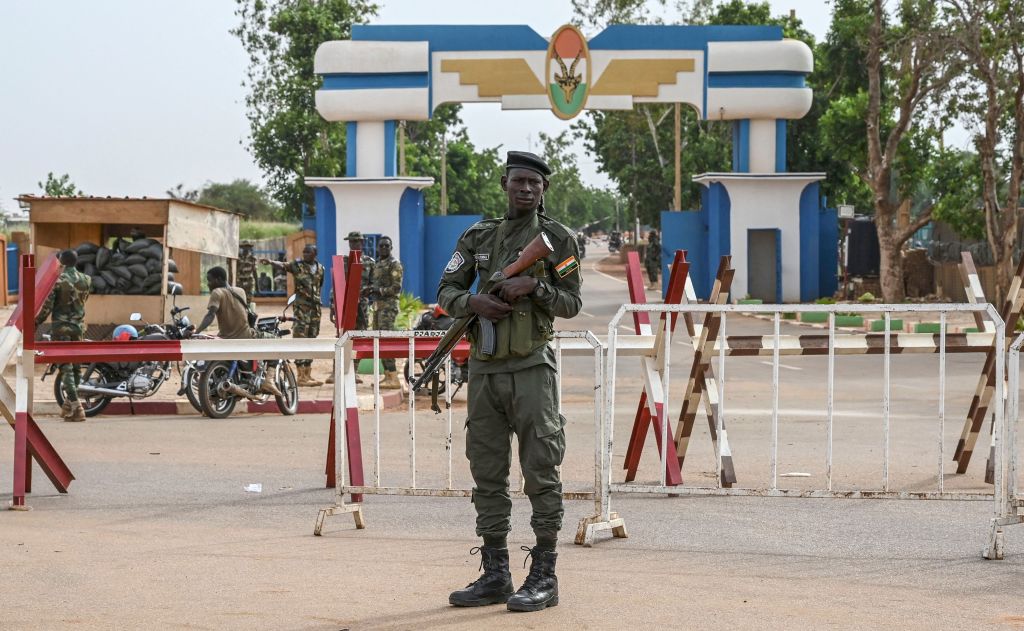ADF STAFF
July 26 marked one year since Niger’s military overthrew the country’s democratically elected government. At the time, junta leaders promised to improve security and the economy, issues Nigeriens continue to struggle with today.
Moussa Moumouni, who served as security advisor to ousted President Mohamed Bazoum, recently noted that 57 Nigerien Soldiers were killed during the previous government’s two years and four months in office.
Since the coup, Niger has lost 780 security personnel in one year, he said.
“In terms of security, the situation has worsened,” he told Deutsche Welle. “God only knows how many civilians were killed.”
Nigeriens also are suffering as the landlocked country’s economy is in tatters.
Much of Niger’s international funding was suspended after the coup — support which made up 38% of the government’s annual budget. Sanctions imposed by the Economic Community of West African States (ECOWAS), which were lifted in February 2024, also damaged the economy.
A variety of food prices increased in the first month after the 2023 coup, and 70% of Niger’s electricity, which comes from Nigeria, was cut off for months before being restored when sanctions were lifted.
“[There is a] real depressing effect on the ability of the government to provide services and on the ability of businesses to thrive,” Africa Center for Strategic Studies researcher Daniel Eizenga told The Associated Press.
Before the coup, Niger had been a key military partner for several countries with which it conducted counterterrorism operations. They included France, Germany, Italy and the United States.
All now have withdrawn their personnel except Italy, which reduced its numbers to 250 in 2023.
Niger quickly has become an enticing target for violent extremist organizations looking to expand within and beyond the Sahel, including affiliates of al-Qaida and the Islamic State group (IS).
Terrorist groups, rebels and militia groups have killed more than twice as many Nigeriens in the year since the coup (1,599) compared to the year before (770), according to the Armed Conflict Location & Event Data Project (ACLED), an independent nonprofit that analyzes data of violent events worldwide.
Extremists carried out almost five times as many large-scale attacks (those resulting in at least 10 deaths) in Niger in the year after the coup, ACLED data showed.
“Al-Qaida and IS militants have carried out deadlier attacks and consolidated control over more territory since the junta took power by taking advantage of security force limitations that the withdrawal of Western support has contributed to,” analyst Liam Carr wrote in a July 23 report for the Critical Threats project.
Carr also wrote that the withdrawal of several military partners has contributed to the junta’s inability to disrupt and contain terrorism. In addition to training Nigerien Soldiers, U.S. troops conducted intelligence, surveillance and reconnaissance (ISR) operations in support of French and Nigerien troops.
“These losses degraded the overall capacity and the ISR capabilities of counterinsurgency forces in Niger, which has almost certainly given the militants much greater freedom of movement and directly helped them stage larger and deadlier attacks,” Carr wrote.

